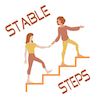FAQ
If I go for help, does it mean there is something wrong with me?
A common misconception about counselling or therapy is that it is for mentally ill patients or for people with something wrong with them.
This is not always the case. You are not broken. You are not crazy.
Counselling and therapy help people who suffer from acute or general stress or distress over certain situations in their life.
It helps people towards recovery by facing their fears. Therapy benefits people who may be going through a particularly tough emotional phase or upheaval. They may be feeling insecure or having a difficult time accepting life changes. The therapist helps people to be conscious about their own thoughts, feelings, and situation.
What conditions do you treat?
We treat depression, anxiety, abuse, past trauma, child behavior problems, substance abuse, coping skills/living skills and life counseling.
Will anyone be told I have come to get therapy?
No, your visits with us are completely confidential.
Why do people consider using therapy?
There are many reasons why people might seek therapy. But often, those wanting therapy come because they are ‘feeling different’ from friends or family, and that they’re not understood. Or they feel alone and have a sense of isolation. Or they cannot escape the negative thinking that is plaguing them and want to change that. Or they feel depression, have marital problems, are experiencing parenting issues, stress or anxiety.
Seeking help via therapy can help you make positive changes that will change your life.
What does research show about the effectiveness of therapy?
25% of people will suffer from mental health disorders in their lives. This can be depression, anxiety, and any number of problems that can plague a person.
The good news is that psychotherapy or therapy has shown to have consistently positive effects for people.
Studies have shown that both therapy and medications rely on client and relationship factors to gain the most benefits – like hope and confidence. It’s not just the medication, or the therapy, it’s the person taking therapy and their medication and working actively with their therapist to improve their lives.
If I begin therapy, how should I try to gain the most from it?
Your therapy is important to both you and us. Getting the most out of your time in therapy is, of course, what you want.
Therapy is a relationship between you and your therapist. So building trust with your therapist is important for you and the therapist. Your therapist will be working to establish a safe and comfortable relationship with you so that you’ll feel ok to share and discuss your concerns.
Likewise, it will be important for you to be open to trusting your therapist, and to resist the urge to shy away from uncomfortable thoughts or ideas. Your treatment may include facing some of these so that you can work through them and learn how to deal with them.
Establish goals with your therapist for positive change, so you cantrack your progress and stay motivated.
Do the work that you and your therapist agree on outside your sessions. Keeping a journal can be helpful for some.
Above all, savor the process. Therapy is like a course, and you are the topic. It can be an amazing, transformative experience towards living a fulfilling life.
How can I evaluate whether therapy is working?
Therapy isn’t a switch that can be flipped to make everything right with the world. But it does work. And it can take time to start seeing the desired effects.
As you go through therapy, you can create milemarkers with your therapist to give you some goalposts. But in short, progress starts with seeing some symptom relief. It can be you feeling you’re more equipped to handle what life throws at you. It can be a feeling of peace.
And it can be more: you could get awareness of information and experiences that live in your unconscious mind. You may find that you’re more in tune with your thoughts and emotions, and that you are no longer on the defensive all the time.
This can help you to improve your personal relationships as well. And you’ll feel more like you.
Let Us Help!
We're Here For You! Call 912-346-2108 or email us.

